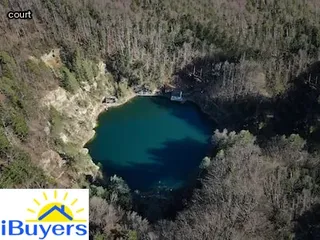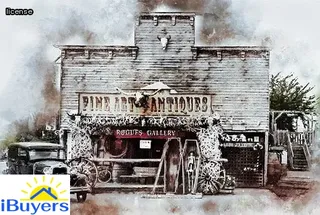In Vermont, probate is the legal process in which a decedent's estate is administered and distributed to their heirs. This includes the collection of any assets owned by the deceased, paying off all debts owed by them, and transferring any real estate property in their name.
Probate is necessary to ensure that all of the decedent's property is properly identified, valued, and distributed according to their wishes. It also helps protect heirs from being taken advantage of or cheated out of their inheritance if the deceased had outstanding debts or liabilities at death.
The probate court oversees this process to ensure fairness and accuracy throughout the transfer of property. Without it, there may be disputes over what belongs to whom and who should be responsible for taxes and other expenses related to the estate.
Probate laws in Vermont are designed to provide a framework for resolving these issues while also protecting the interests of all involved parties.

Navigating probate laws and real estate transfer in Vermont can be a daunting task. To understand the process, it is important to understand the basics of the probate process in Vermont.
Probate is the process of verifying a deceased individual's will and distributing their assets to their beneficiaries. In order for a will to be valid, it must meet all the requirements outlined by Vermont law.
In addition, any real estate owned by the deceased needs to go through an additional transfer process. During probate, an executor is typically appointed by the court to represent the interests of the deceased and manage their estate.
The executor is responsible for gathering information on all assets, filing court documents, notifying beneficiaries, and managing debts and taxes associated with the estate. They also need to obtain appraisals of any real estate or other property included in the will.
Finally, they must file a final accounting with the court before distributing assets to beneficiaries. Navigating these laws can be complicated but understanding them is essential for making sure wills are properly executed and estates are distributed as intended by law.
In Vermont, an executor is the individual who is legally responsible for carrying out a will's instructions after the death of the will-maker. This individual must be appointed by the court and has certain requirements that must be met.
According to Vermont law, anyone aged 18 years or older can serve as an executor provided they are deemed competent by the court. They must also have legal residency in Vermont or have a valid post office box address in Vermont.
The executor can be an immediate family member of the deceased or someone unrelated to them, such as a friend or attorney. The court may also appoint a company that specializes in estate administration.
It is important to note that while spouses are permitted to act as executors, they cannot receive any compensation unless it is specifically stated in the will itself.

In Vermont, an executor is responsible for overseeing the probate process and ensuring that all assets of the deceased are distributed according to their wishes. This includes filing legal paperwork with the court, gathering information about the estate, locating heirs to the estate, and notifying creditors of the decedent’s death.
The executor is also responsible for collecting any debts owed to the estate and paying off any outstanding debts or taxes that are owed by it. Additionally, an executor must make sure that all applicable real estate transfers take place in accordance with Vermont law.
This can include transferring ownership of a home or other property from one owner to another as outlined in a will or trust document. Ultimately, it is up to the executor to ensure that all aspects of probate law and real estate transfer are followed correctly so that no issues arise in the future and all parties involved in the probate process can be confident that their rights have been respected.
Navigating probate laws can be tricky, especially when it comes to real estate transfer in Vermont. Fortunately, there are steps you can take to avoid probate in the state.
One way is to transfer your real estate into a living trust or joint tenancy with your spouse. This will allow for a smooth transition of ownership without having to go through the probate process.
Another option is to add payable-on-death designations to your bank accounts and other financial assets, which would enable them to bypass the probate process upon your death. Additionally, if you own your home jointly with someone else, you could designate them as a beneficiary on the deed so that they would automatically become the new owner upon your passing.
Finally, you may also want to consider gifting certain property while you're still alive, such as transferring ownership of a car or other valuable item directly to another individual. Taking these steps ahead of time can help minimize stress and ensure that your loved ones are taken care of after you're gone.

In Vermont, settling an estate requires the surviving family members to adhere to certain laws and regulations pertaining to probate and real estate transfer. First, it is essential that the estate's executor obtain a court-appointed letter of administration from the Probate Division of the Vermont Superior Court.
This document grants the executor legal authority to manage and distribute the deceased’s assets. In addition, all creditors must be contacted and paid off prior to any distribution of assets.
The court may also require a hearing before allowing full access to any assets or real estate holdings. Finally, if a will exists, it must be formally established as valid in accordance with state law before any property can be distributed according to its provisions.
As a result, it is recommended that families seek professional assistance when navigating these complex probate and real estate transfer laws in order to ensure compliance with all legal requirements.
After a loved one passes away, filing a will in Vermont can be a difficult process. To help navigate the probate laws and real estate transfer requirements in the state, it is important to understand the essential steps involved.
The first step is to determine if a will exists for the deceased person by contacting the county court or hiring an attorney. If there is a will, it must be filed with the probate court within six months of death.
After filing, an executor must be formally appointed who will then manage all assets of the decedent and handle any resulting tax payments or other financial obligations. Next, all creditors must be notified and claims paid off before distributing remaining assets according to instructions in the will.
Heirs should also receive notice of their inheritance rights so they can make decisions about whether to accept them or not. Lastly, estate taxes may need to be paid depending on how large the estate is and any applicable deadlines.
Knowing these steps can make it easier to file a will after death in Vermont while ensuring that all legal requirements are met.

The fees associated with a probate court in Vermont depend on the size of the estate at hand. Generally, a filing fee of $200 is required, as well as a fee for administering certain documents, such as an inventory and accounting form.
There may also be additional costs for publishing a notice in the newspaper when necessary and other miscellaneous expenses. The court will typically assess the Executor or Administrator of the estate to cover these costs.
It is possible to apply for reduced or waived fees if you are unable to pay due to financial hardship, however this must be requested before finalizing any paperwork. Even after all costs have been paid, some assets may still need to be transferred through real estate law in order to complete the process.
In Vermont, the executor of an estate is entitled to reasonable compensation for their services. Compensation is typically based on the size and complexity of the estate, as well as the amount of time and effort required to administer it.
The state's probate laws allow the executor to request payment from the estate for their services, up to a certain percentage of its total value. However, it must be approved by all interested parties before any funds can be withdrawn.
This includes all beneficiaries and creditors, who must sign off on any payments made to an executor. In addition, any payments made must be reported on both federal and state tax returns by the executor or estate representative.
Although there are no set rules in Vermont for determining how much should be paid out in executor compensation, it is important that all parties involved are able to reach an agreement that is fair and reasonable for everyone involved in order to ensure a smooth real estate transfer process.

Navigating probate laws and real estate transfers in Vermont can be a complicated process, but it is important to understand the timeline of how long it will take to complete probate proceedings. In Vermont, the typical time frame for probate proceedings is between four and eight months from the initial filing to completion.
It is important to note that this timeline can vary depending on many factors, such as the complexity of the estate or whether any disputes arise. The court must also approve certain documents before final distribution happens.
Ultimately, efficient communication between all parties involved and timely submission of all relevant paperwork will help ensure that probate proceedings are completed in a timely manner. Additionally, hiring an experienced attorney can be invaluable in helping you understand and navigate both state law and local court processes.
If you do not go through probate in Vermont, the real estate transfer process may be significantly altered. If a person dies without a will or other type of estate plan, the decedent's assets must pass through the probate process.
Without probate, there is no formal court proceeding to determine who is entitled to receive the deceased's assets and in what amounts. Instead, any assets that are held jointly with another person will pass automatically to that other person.
Other assets will typically pass according to state intestacy laws which dictate how assets are distributed when a decedent dies without a will. Additionally, if the decedent owned real property in Vermont, any title transfers must usually go through the probate court in order for them to be valid.
Not going through probate can also lead to complications and delays when it comes to taxes as well as an increased possibility of disputes with family members or creditors over ownership of certain property.

Navigating the probate laws and real estate transfer in Vermont can be a complicated and time-consuming process. It is important to understand how to handle real estate during a probate proceeding in Vermont, as this will impact the overall timeline and cost associated with transferring ownership.
In general, real estate must be identified, appraised, and then transferred from the deceased person’s name into the name of their heirs or beneficiaries. It is important to note that if any debt was secured by the property, it must also be paid off before the title can be transferred.
Additionally, any liens or mortgages must also be addressed before transfer of ownership can occur. If all parties agree, an agreement called a quitclaim deed may be used to expedite the process.
In cases where there are multiple heirs involved in a dispute about who will receive which assets, it is best to seek out legal advice from an experienced attorney who specializes in probate law in Vermont. This comprehensive guide can help you navigate probate laws and real estate transfer in Vermont more effectively.
If you are the executor of an estate in Vermont, you must take certain steps to ensure that all assets are distributed to those entitled to receive them. The first step is to file a petition with the probate court in the county where the deceased lived.
This petition should include information about all assets and liabilities, as well as a list of potential beneficiaries. The court will then review the documents and issue a court order authorizing distribution of the assets.
Once this has been done, it is important for the executor to provide notice to all potential beneficiaries so that they can claim their share of the estate. After this notification period has passed, the executor can begin distributing the assets according to the terms specified in either a will or state law, depending on whether there was one or not.
In some cases, additional paperwork may need to be filed with the court before distributions are made from real estate holdings.
Transferring real estate in Vermont can be a complicated process, especially if you are required to go through probate. However, there are ways to avoid probate and streamline the process.
One of the most effective methods for avoiding probate is to establish a trust. A trust allows you to transfer your property to a designated beneficiary upon your death without having to go through the court system.
Additionally, it is possible to transfer ownership of real estate through joint tenancy with rights of survivorship or gifting prior to death. Both methods allow for an easier transition of ownership and help avoid probate in Vermont.
Furthermore, it's important to have a valid will in place as this will ensure that all of your assets are distributed according to your wishes without having to go through the lengthy probate process. By understanding these methods and taking advantage of them, you can easily navigate the complex laws surrounding real estate transfer and probate in Vermont.

In Vermont, when a person passes away, the decedent's assets must usually go through probate. Probate is the legal procedure for transferring ownership of the decedent's real estate and other possessions to the heirs or beneficiaries specified in their will.
The probate process can vary from state to state, so it’s important to understand how it works in Vermont. Generally speaking, if the deceased’s estate is worth more than $10,000 or consists of real property such as a house or land, then they must go through probate before the assets can be transferred.
Additionally, if there is no will or trust that explicitly states who should receive what assets after death, then probate is also necessary. In Vermont, the court appoints an executor who oversees the entire process and makes sure all debts are paid and any remaining assets are distributed according to Vermont law.
This guide provides a comprehensive overview of navigating probate laws and real estate transfer in Vermont so you can be sure your loved one's wishes are carried out properly.
Navigating probate laws and real estate transfer in Vermont can be a daunting process. Understanding the probate laws in Vermont is essential to ensure that all parties involved in the transfer of real estate follow the legal requirements.
Specifically, according to Vermont law, when an individual passes away, their property must pass through a court-supervised process called probate before it can be legally transferred to beneficiaries. This process involves filing documents with the probate court, inventorying the deceased’s assets and distributing them according to the terms of a will or other estate planning document.
Probate laws also dictate how debts are handled during this process and who is responsible for paying them. In addition, these laws also determine which family members may receive part of an inheritance if there is no will or if it has been deemed invalid by a court.
It is important to note that if any disputes arise regarding an inheritance or estate distribution, they must be resolved through probate court proceedings. With a thorough understanding of the probate laws in Vermont, individuals can ensure that their loved ones’ wishes are respected and that their real estate transfers are legally binding and secure.
Rule 80.3 Vermont is a law that governs the transfer of real estate in probate proceedings in the state of Vermont.
Probate is the legal process by which a deceased person's property, including real estate, is transferred to his or her designated beneficiaries. Through probate, debts and taxes are paid, assets are managed and distributed, and disputes between parties are resolved.
Rule 80.3 Vermont outlines how real estate must be handled during a probate proceeding and provides guidance on the steps necessary to transfer title to an heir or beneficiary.
This rule ensures that all legal requirements are met when transferring real estate through probate so that title passes properly from the deceased party to the beneficiary according to their wishes. Additionally, it covers topics such as proper notice requirements for all parties involved in a probate proceeding and establishes procedures for filing petitions with courts in order to gain approval for property transfers.
By understanding Rule 80.3 Vermont, individuals can navigate probate laws efficiently and ensure that all legal obligations are met when transferring real estate in Vermont.